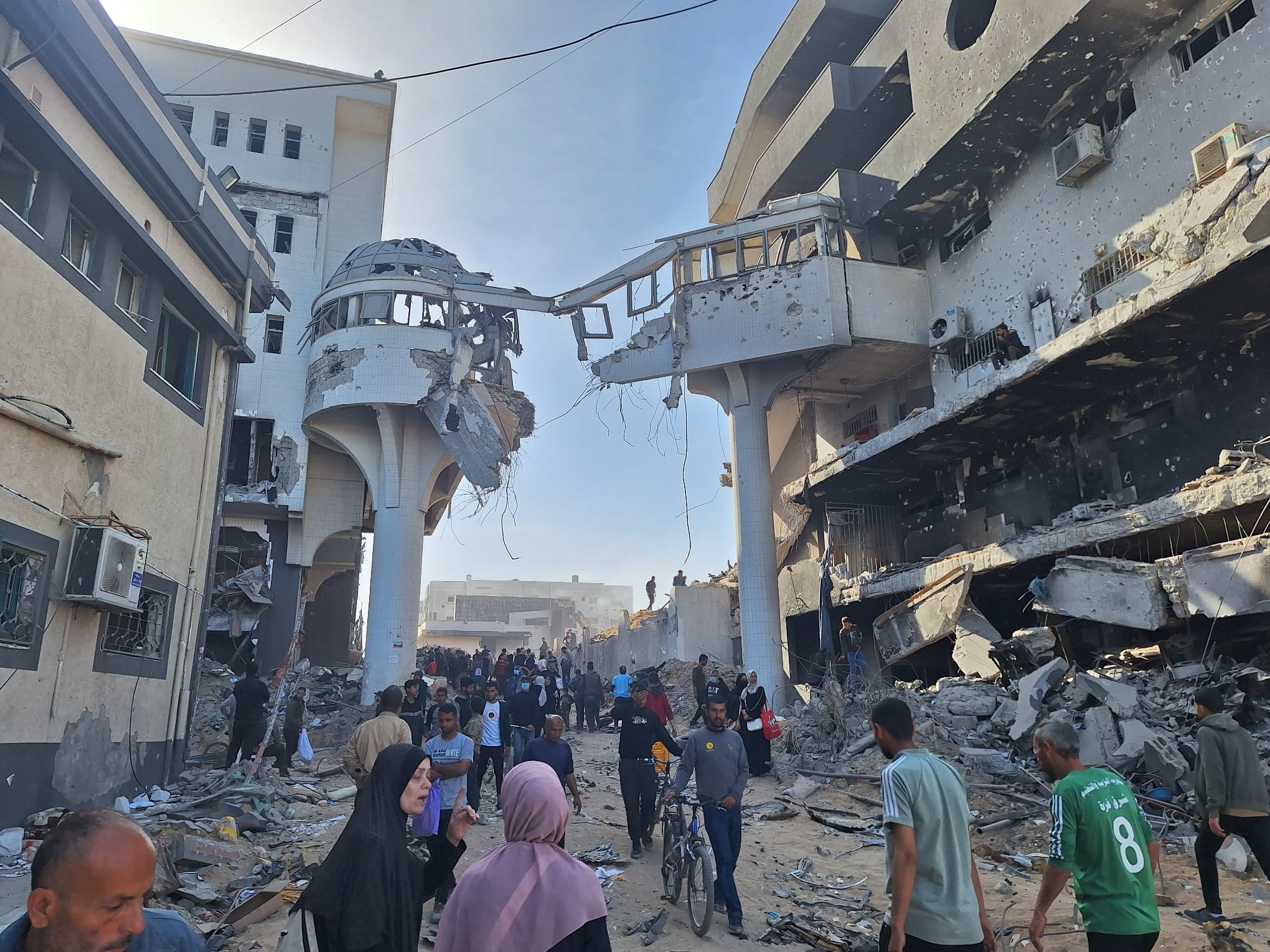Israeli forces have tightened their offensive on hospitals and shelters for internally displaced civilians in northern Gaza. Medics and residents reported, on Monday, that emergency supplies to the affected area were cut off as the military operations surrounded the Jabalia refugee camp, housing around 100,000 people, and pounded residential areas with airstrikes, killing at least five and wounding several others.
Israeli authorities have banned necessary humanitarian teams from conducting missions with vital supplies-the food and medicine are very much needed in these areas, according to confirmation by the United Nations Palestinian refugee agency, UNRWA.
Eyewitnesses reported that Israelis had stormed into schools and detained men in Jabalia, then set buildings nearby the hospitals on fire with flames-sparking power outages. Alarms were raised by medics as hospital supplies ran perilously low, with patients dying because of the shortage of medical resources. “Critically injured patients have succumbed due to shortages,” confirmed the director of Kamal Adwan Hospital, Hussam Abu Safiya, noting that the hospital had exhausted its blood supplies and was forced to ration treatment.
The Israeli army argues to have targeted the network of Hamas and militants in the area, in the process facilitating evacuation in some ways for civilians along the specified routes. This was, however, disputed by the UN, which described Israel as blocking vital humanitarian aid, which would lead to the destruction of Gaza’s northern population through displacement and death. The escalations push over 1.9 million people away from their homes, depriving them of the most basic needs, such as food and clean water.
Despite all international outcry, Israel is not willing to let up on its military campaign since the killing of kkeyHamas and Hezbollah leaders, including Hamas leader Yahya Sinwar. The murder of Sinwar, who is known to be the mastermind behind attacks targeting Israel, was one historic moment in the still-unfolding conflict. Still, it did not prompt the group to demand an instant ceasefire. On the contrary, Israeli forces said they would continue their operations to neutralize Hamas altogether.
It’s the same gloomy scenario for Gaza’s civilians. The hospitals are bursting at the seams, says nurse Hadeel Obeid: “No water, no food, very little medication. and not one person asks about political solutions.” UNRWA has repeatedly warned that many shelters are so packed with displaced people that they are taking to live in toilets-only, even further underscoring the humanitarian crisis.
With the continuation of the campaign in Israel, more and more people start worrying about the possible long-term negative consequences of the conflict. Last week, the United States requested Israel to enhance the humanitarian situation in Gaza and simultaneously offered to send the signal that it will be capable of limiting military supplies if such development does not take place. However, no one even speaks of a ceasefire, and the humanitarian catastrophe in Gaza becomes worse, and hopes for the white end stay uncertain.
For more reporting like this, please follow Newsdecensored on your favorite social media sites and bookmark the website. Thank you for your interest and support.















